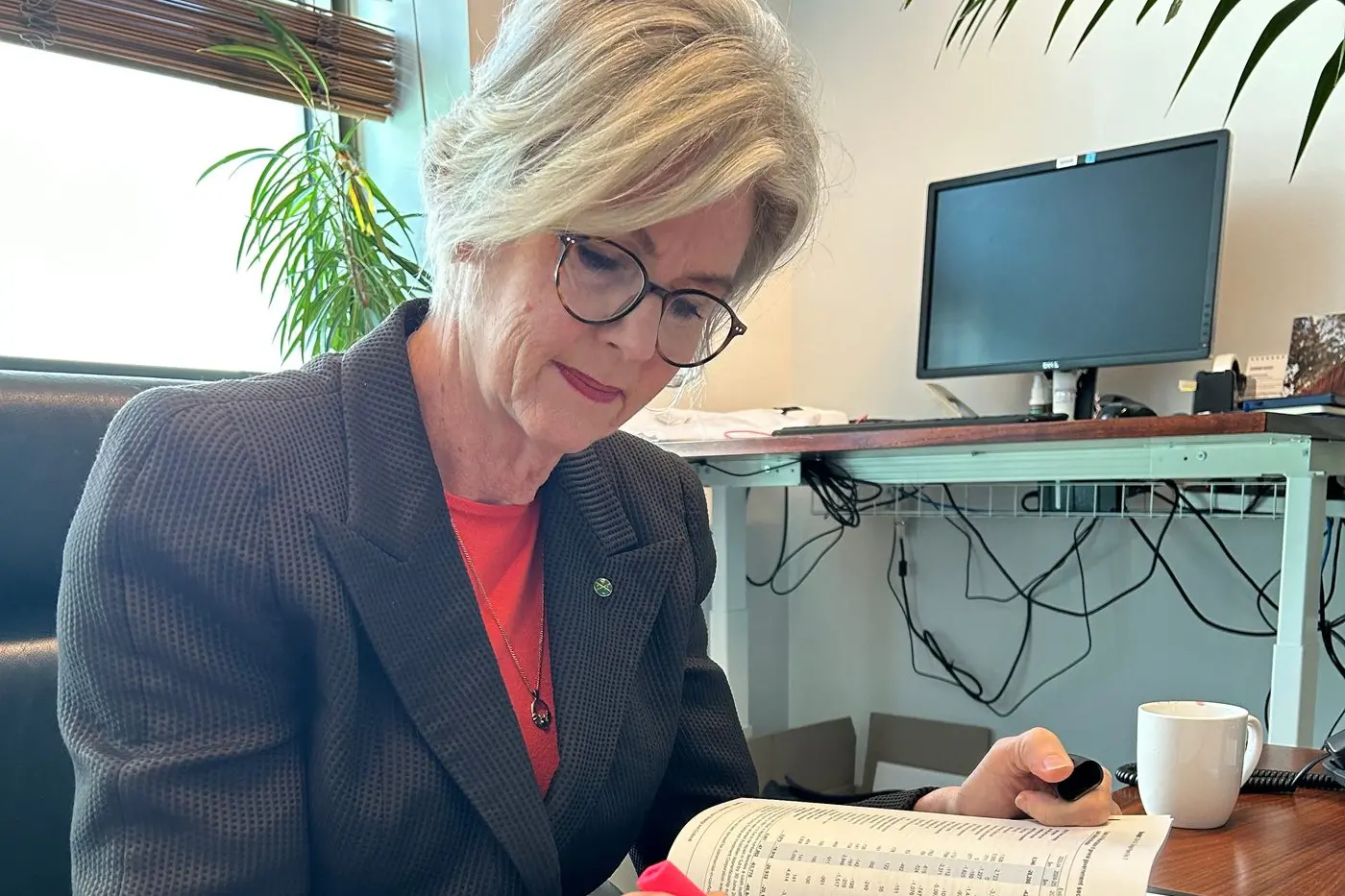PHOTO
TAX cuts in the 2025-26 Federal Budget have been welcomed by the Indi incumbent Helen Haines, something she labelled as an 'election sweetener' as it will ease the cost of living.
A key item in the budget has workers earning an average $79,000 a year paying $268 less in tax in 2026, rising to $536 in 2027.
From 1 July 2026, the tax rate on income earned between $18,201 and $45,000 will be cut from 16 per cent to 15 per cent, and will reduce even further to 14 per cent from July 2027.
But while the tax cuts would reduce pressure, Dr Haines said almost 5000 people in Indi are on JobSeeker and there are no provisions in this budget for increases to Commonwealth Rent Assistance, JobSeeker allowance or other Commonwealth support payments.
The government will extend rebates on electricity bills by six months, providing another $150 cut to power bills for households and small businesses.
But Dr Haines was not happy with the omission of funding for businesses to convert from gas to electric appliances.
“What is also still missing for households and businesses is support to electrify," she said.
"With the cost of domestic gas, Australians know that the best energy cost saver is rooftop solar and electrification."
Dr Haines welcomed funding to deliver more training places for doctors in regional Australia.
However, she expressed disappointment with the absence of funding for Albury hospital, and its failure to continue support for small businesses to reduce costs through energy upgrades.
Health was a winner in the budget with the doctors shortage receiving attention via 200 rural GPs to be trained every year by 2028, as part of the $606.3 million committed in the budget.
Dr Haines said in her Indi budget submission, she requested the government provide additional funding, including via Commonwealth Supported Places, for regionally-based medicine university courses.
The budget revealed that universities wanting to access the $35.7 million for 100 new Commonwealth Supported Places (CSP) a year in medicine must demonstrate evidence-based strategies that encourage medical students to pursue a career in general practice, particularly in regional, rural and remote areas of Australia.
“This is a critical announcement and a win for regional areas facing critical shortages of healthcare workers, with a commitment to 50 per cent of additional General Practitioner trainee places being in regional and rural Australia,” Dr Haines said.
Dr Haines also welcomed other healthcare inclusions, such as cheaper medicines by lowering the Pharmaceutical Medicines Scheme general patient co-payment from $31.60 to $25 from 1 January 2026, and $7.9 billion to expand eligibility for bulk billing incentives to all Australians.
This has been matched by the Coalition if elected.
Dr Haines said she was angry that regional infrastructure programs like the Growing Regions and the regional Precincts and Partnerships Program, along with regional roads and housing infrastructure funding had no further funding committed in the budget.
"Regional councils and organisations rely on competitive grant programs like these for key projects and community infrastructure," she said.
"The appalling state of our local roads is evidence that much more support is needed for our local government road programs.
“In the absence of well-planned and well-funded programs, we know in election season the major parties’ fallback can be pork-barrelling based on where they need votes, rather than where funding is needed the most.”
Almost $400 million was awarded to the Albury Wodonga Military Area Redevelopment for accommodation and other facilities.
Liberal candidate for Indi James Trenery has slammed the budget.
He said the budget was for the next five weeks, not the next five years.
"This is a budget for an election, not one for our country’s future prosperity," he said.
"At a time when living standards have suffered the biggest collapse on record and when the security environment is the most dangerous since World War II, Labor’s budget has failed to deal with the economic and national security challenges our communities and country faces.
Mr Trenery also took aim at Dr Haines' capacity to harness funding for Indi.
"Locally, this budget is another example of Helen Haines’ funding failure," he said.
"None of the local funding promised in Helen Haines’ 47 page Budget Submission was delivered.
"Year after year, we are not getting our fair share.
"Not one cent of Helen Haines’ election commitments were funded in the budget on Tuesday night.
"Helen Haines must be upfront with our community – how will she deliver her proposed programs when no funding is in the budget?
"Just like Helen Haines’ $2 billion housing policy, announced in 2022.
"No homes have been built, not one dollar spent - why?
"No new mobile phone blackspot towers have been funded since 2022 - why?
"It’s time for change to get our communities back on track."





